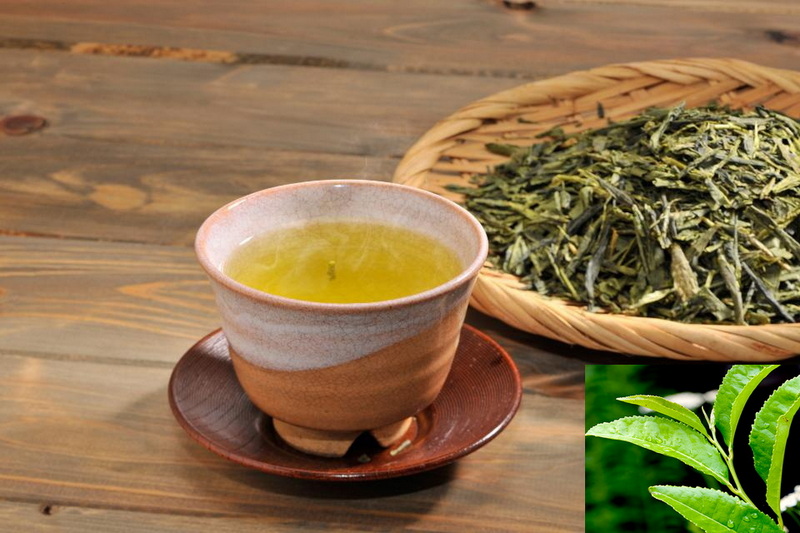Content Menu
● Understanding Green Tea Extract
>> Caffeine Content in Green Tea Extract
● Factors Influencing Caffeine Levels
● Recommended Dosage for Green Tea Extract
>> Suggested Dosage Guidelines
● Health Benefits of Green Tea Extract
● Safety Considerations
>> Special Populations and Precautions
● Popular Forms of Green Tea Extract
● How to Incorporate Green Tea Extract into Your Routine
● Conclusion
● FAQ
>> 1. How much caffeine is in a typical cup of brewed green tea?
>> 2. Can I take green tea extract if I'm sensitive to caffeine?
>> 3. What are the potential side effects of taking too much green tea extract?
>> 4. Is it safe to take green tea extract while on medication?
>> 5. How should I store my green tea extract supplements?
● Citations:
Green tea extract has gained popularity due to its potential health benefits, including weight loss, improved metabolism, and antioxidant properties. However, one common question among consumers is: How much caffeine is in green tea extract? This article will explore the caffeine content in various forms of green tea extract, its effects, recommended dosages, and safety considerations.

Understanding Green Tea Extract
Green tea extract is derived from the leaves of the Camellia sinensis plant. The extraction process concentrates the beneficial compounds found in green tea, including catechins (especially epigallocatechin gallate or EGCG) and caffeine. The caffeine content can vary significantly depending on the brand and formulation.
Caffeine Content in Green Tea Extract
The caffeine content in green tea extract can range widely:
- Standard Brewed Green Tea: A typical 8-ounce cup contains about 30-50 mg of caffeine.
- Green Tea Extract Supplements: These can contain anywhere from 15 mg to over 200 mg of caffeine per serving.
For example:
- NOW Foods Green Tea Extract: 400 mg of extract with up to 32 mg of caffeine per serving.
- Jarrow Formulas Green Tea: 500 mg of extract containing approximately 40 mg of caffeine.
- Nature's Truth Caffeine Plus Green Tea Extract: Contains about 200 mg of caffeine with a smaller amount of green tea extract.
Factors Influencing Caffeine Levels
Several factors can affect the caffeine concentration in green tea extracts:
- Extraction Method: Different methods can yield varying amounts of caffeine. For instance, water extraction may produce different results compared to alcohol extraction.
- Tea Leaf Variety: Some varieties naturally contain more caffeine than others. For example, Assam and Darjeeling teas have higher caffeine levels compared to other varieties.
- Processing Conditions: Factors such as temperature and steeping time during extraction can impact caffeine levels. Longer steeping times generally increase caffeine extraction.
Recommended Dosage for Green Tea Extract
The recommended dosage for green tea extract varies based on individual health goals and sensitivity to caffeine. Generally, a daily intake of 250-500 mg of green tea extract is considered safe and effective for most adults. This amount typically provides a moderate dose of caffeine.
For those new to green tea extracts or sensitive to stimulants, starting with a lower dose (around 30-50 mg of caffeine) is advisable. Gradually increasing the dosage allows individuals to assess their tolerance.
Suggested Dosage Guidelines
1. General Health Benefits: For overall health benefits, a daily dosage of 250-500 mg is recommended.
2. Weight Loss Support: Individuals aiming for weight loss may consider higher doses (up to 800 mg), but they should monitor their body's response closely.
3. Antioxidant Effects: To achieve antioxidant benefits, a lower dose (around 100-200 mg) may suffice.
4. Pre-Workout Supplementation: For those using green tea extract as a pre-workout supplement, doses ranging from 100-300 mg can enhance performance due to its stimulant effects.
5. Long-Term Use Considerations: Long-term users should periodically reassess their dosage based on changes in tolerance or health status.
Health Benefits of Green Tea Extract
Green tea extract is associated with numerous health benefits:
- Weight Loss Support: Studies suggest that the combination of catechins and caffeine may enhance fat oxidation and improve metabolic rate. Research indicates that individuals who consume green tea extract regularly may experience greater weight loss compared to those who do not.
- Antioxidant Properties: High levels of EGCG provide significant antioxidant effects, which may help protect against oxidative stress and inflammation. Antioxidants are crucial for neutralizing free radicals that can damage cells and contribute to chronic diseases.
- Heart Health: Regular consumption may lower cholesterol levels and improve cardiovascular health. Some studies have shown that green tea drinkers have a lower risk of heart disease due to its ability to improve blood lipid profiles.
- Cognitive Function: Research indicates that the compounds found in green tea may support cognitive function and reduce the risk of neurodegenerative diseases such as Alzheimer's and Parkinson's disease.
- Blood Sugar Regulation: Some studies suggest that green tea extract may help regulate blood sugar levels, making it beneficial for those with insulin sensitivity or type 2 diabetes.

Safety Considerations
While green tea extract is generally safe for most people, excessive consumption can lead to side effects due to its caffeine content. Potential side effects include:
- Anxiety
- Insomnia
- Increased heart rate
- Gastrointestinal issues
Individuals with certain health conditions or those taking specific medications should consult a healthcare professional before using green tea extract supplements. Pregnant or breastfeeding women are also advised to limit their intake due to the potential risks associated with high caffeine consumption.
Special Populations and Precautions
1. Pregnant Women: High doses of caffeine during pregnancy can lead to complications; thus, it's advisable for pregnant women to limit their intake significantly.
2. Individuals with Heart Conditions: Those with pre-existing heart conditions should be cautious about their caffeine intake as it may exacerbate symptoms.
3. People with Anxiety Disorders: Since caffeine can increase anxiety levels, individuals prone to anxiety should consider reducing their intake or opting for decaffeinated versions.
4. Children and Adolescents: Due to their smaller body size and developing systems, children should avoid high doses of caffeine found in supplements.
5. Medication Interactions: Certain medications may interact negatively with green tea extracts; always consult a healthcare provider if you are on medication.
Popular Forms of Green Tea Extract
Green tea extract is available in various forms, each offering unique advantages:
- Capsules/Tablets: These are convenient for precise dosing and are widely available.
- Powdered Extracts: Often used in smoothies or as an ingredient in recipes; they allow for versatile use but require careful measurement.
- Liquid Extracts/Tinctures: These provide rapid absorption but may have a shorter shelf life compared to capsules or powders.
- Tea Bags: While not as concentrated as extracts, drinking brewed green tea provides additional hydration benefits along with antioxidants.
How to Incorporate Green Tea Extract into Your Routine
Incorporating green tea extract into your daily routine can be straightforward:
1. Start Slowly: Begin with a low dose to assess your tolerance before gradually increasing it based on your needs.
2. Combine with Meals: Taking supplements with food may reduce gastrointestinal discomfort associated with high doses.
3. Stay Hydrated: Ensure adequate water intake throughout the day, especially if consuming caffeinated products.
4. Monitor Effects: Keep track of how your body responds over time; adjust your dosage accordingly if you experience side effects or if your goals change.
5. Consult Professionals: If unsure about how much to take or how it fits into your overall health plan, consult a healthcare professional or nutritionist for personalized advice.
Conclusion
In summary, the caffeine content in green tea extract varies widely depending on the brand and formulation. Understanding how much caffeine is present in your chosen supplement can help you manage your intake effectively. Always start with a lower dose if you're new to these supplements and consult a healthcare provider if you have any concerns regarding your health or medication interactions.

FAQ
1. How much caffeine is in a typical cup of brewed green tea?
A typical cup of brewed green tea contains about 30-50 mg of caffeine.
2. Can I take green tea extract if I'm sensitive to caffeine?
Yes, but it's advisable to start with a low dose (around 30-50 mg) and monitor your body's response.
3. What are the potential side effects of taking too much green tea extract?
Excessive intake can lead to anxiety, insomnia, increased heart rate, and gastrointestinal issues.
4. Is it safe to take green tea extract while on medication?
Consult with a healthcare professional before combining green tea extract with medications, especially those affecting liver function or blood pressure.
5. How should I store my green tea extract supplements?
Store them in a cool, dry place away from direct sunlight to maintain potency.
Citations:
[1] https://www.livestrong.com/article/186702-how-much-caffeine-is-in-green-tea-extract/
[2] https://www.elo.health/articles/green-tea-extract-supplements/
[3] https://www.zhounutrition.com/blogs/the-greatness-files/green-tea-extract-q-a
[4] https://www.practo.com/healthfeed/green-tea-side-effects-and-who-must-avoid-it-3626/post
[5] https://www.webmd.com/vitamins/ai/ingredientmono-960/green-tea
[6] https://www.healthline.com/nutrition/10-benefits-of-green-tea-extract
[7] https://www.caffeineinformer.com/caffeine-content/green-tea-extract
[8] https://health.clevelandclinic.org/green-tea-extract-a-better-way-to-boost-energy-or-not
[9] https://www.reddit.com/r/chemistry/comments/3gt1zo/how_much_caffeine_in_green_tea_extract/
[10] https://pubmed.ncbi.nlm.nih.gov/16176615/
[11] https://pubmed.ncbi.nlm.nih.gov/10584049/
[12] https://www.ncbi.nlm.nih.gov/books/NBK299060/
[13] https://health.clevelandclinic.org/green-tea-extract-a-better-way-to-boost-energy-or-not
[14] https://examine.com/supplements/green-tea-extract/
[15] https://www.webmd.com/vitamins/ai/ingredientmono-960/green-tea
[16] https://www.sugimotousa.com/blog/green-tea-vs-coffee-everything-you-need-to-know
[17] https://www.youtube.com/watch?v=5OlyxaRgabw
[18] https://pmc.ncbi.nlm.nih.gov/articles/PMC7098939/
[19] https://www.youtube.com/watch?v=CkdqsIhHEhM
[20] https://pmc.ncbi.nlm.nih.gov/articles/PMC4307170/
[21] https://cytomatrix.ca/products/green-tea-extract-90-v-caps/
[22] https://www.youtube.com/watch?v=Q8gBjZ5e3Bs
[23] https://www.medicalnewstoday.com/articles/269538
[24] https://www.youtube.com/watch?v=RIbff5iD0GQ
[25] https://www.urmc.rochester.edu/encyclopedia/content?contenttypeid=19&contentid=greenteaextract
[26] https://pmc.ncbi.nlm.nih.gov/articles/PMC10930107/
[27] https://www.drugs.com/mtm/green-tea.html
[28] https://si.chenlangbio.com/knowledge/do-green-tea-extract-have-caffeine-






























